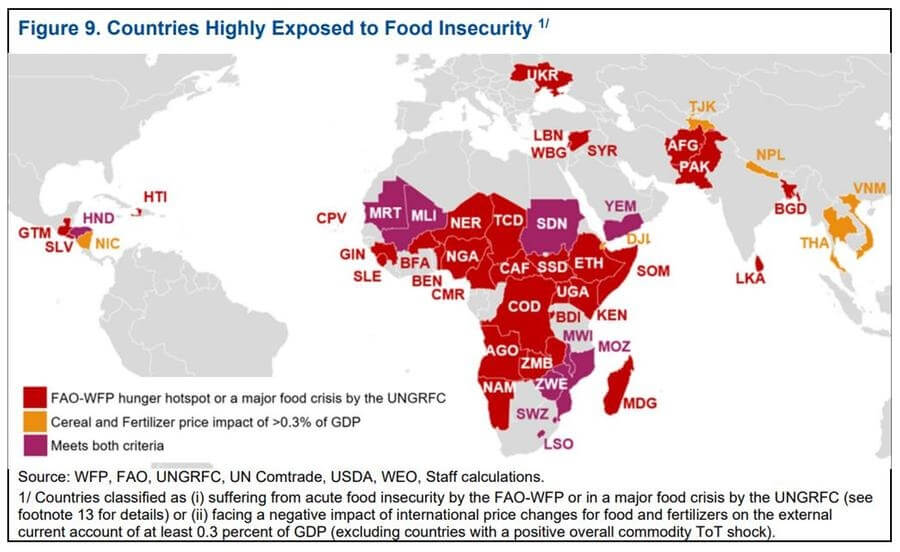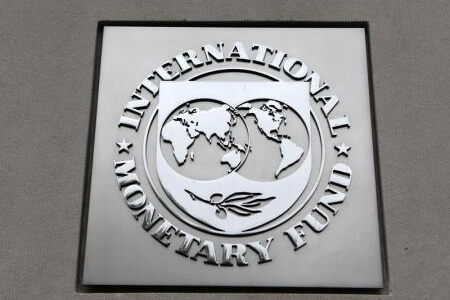International reserves of low-income countries in the Middle East, Africa and Asia will erode further due to rising food and fertilizer costs, according to the International Monetary Fund (IMF).
The financial toll will reach around $9 billion in the form of additional import bills in 2022 and 2023 for at least 48 countries that are most exposed to food insecurity, the IMF said in a new white paper.

These countries include Lebanon, Syria, Yemen, Sudan, Somalia, Zambia, Ethiopia, Central African Republic, Congo, Nigeria, Afghanistan, Nepal, Bangladesh, Vietnam, Thailand and Sri Lanka, among others.
Russia’s war in Ukraine has exacerbated the food insecurity crisis, which has been rising since 2018. The conflict has pushed the prices of food and fertilisers higher, hurting importers and prompting several countries to impose export limits.
While the impact is felt everywhere, the 48 countries identified by IMF will suffer most, with many of them highly dependent on imports from Ukraine and Russia.
“The impact of higher import costs for food and fertiliser for [these countries] will add $9 billion to their balance of payments pressures – in 2022 and 2023,” IMF said in a related report.
“This will erode countries’ international reserves, and their ability to pay for food and fertilizer imports.”
Of the $9 billion, an estimated $4.7 billion will be incurred in 2022 and $4.1 billion in 2023.
Actions to be taken
To mitigate the impact, the IMF suggested that “strong and swift policy action” must be taken. Measures include humanitarian assistance to most vulnerable countries, maintaining open trade within regions to allow food to flow from surplus areas to those in need, increasing food production, improving food distribution and investing in climate-resilient agriculture.
“The international community must also take decisive action to ensure that the needed financing is in place to deal with the immediate crisis and to strengthen food security in the medium-to-long term.”
It said that more grants and concessional financing from donors and international organisations are needed “urgently”.
“This global food crisis has staggering humanitarian impact and large financial costs. It requires a comprehensive and well-coordinated approach to ensure complementarity and maximum efficiency in resource use,” the IMF said.
SOURCE: ZAWYA







